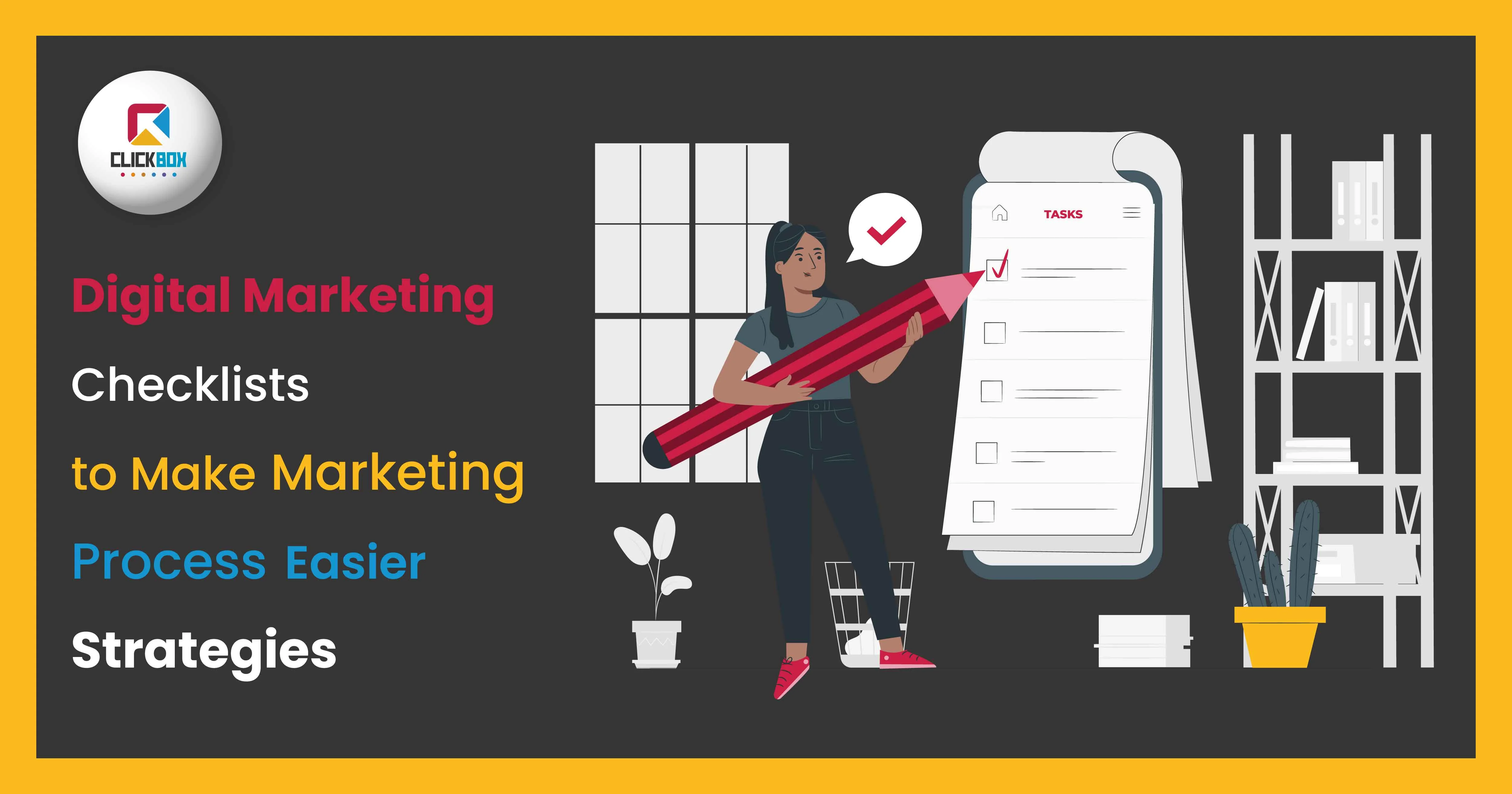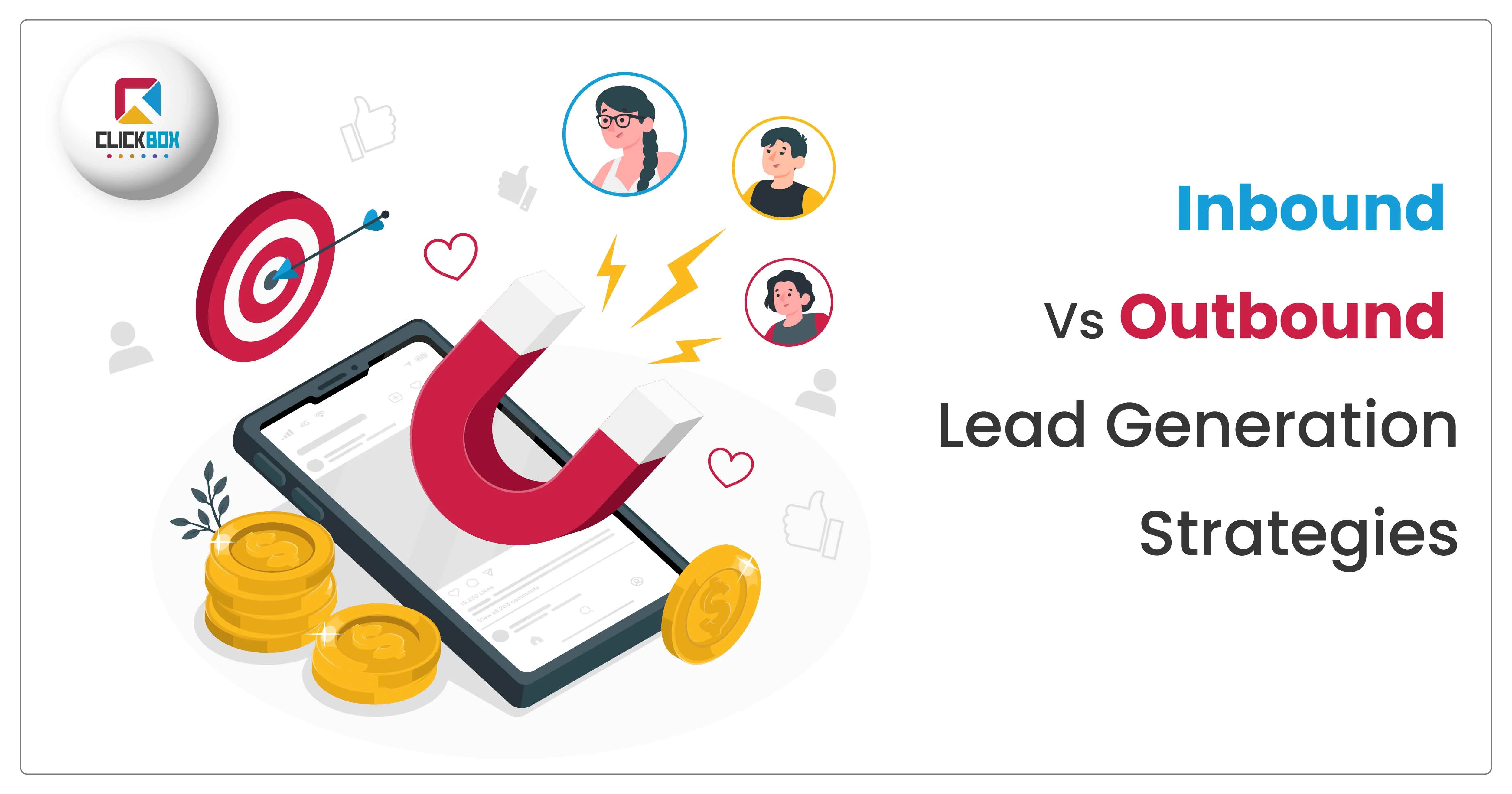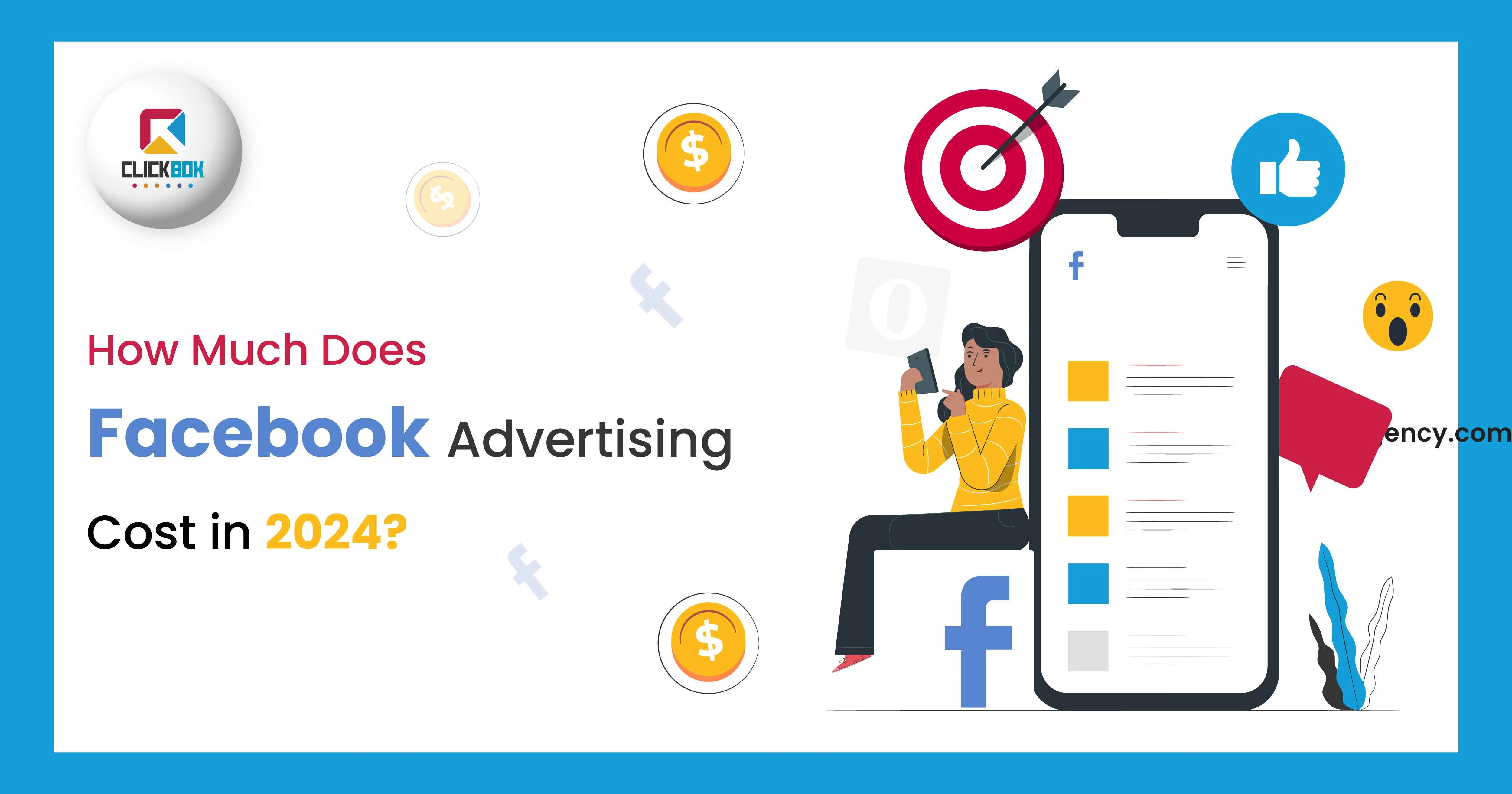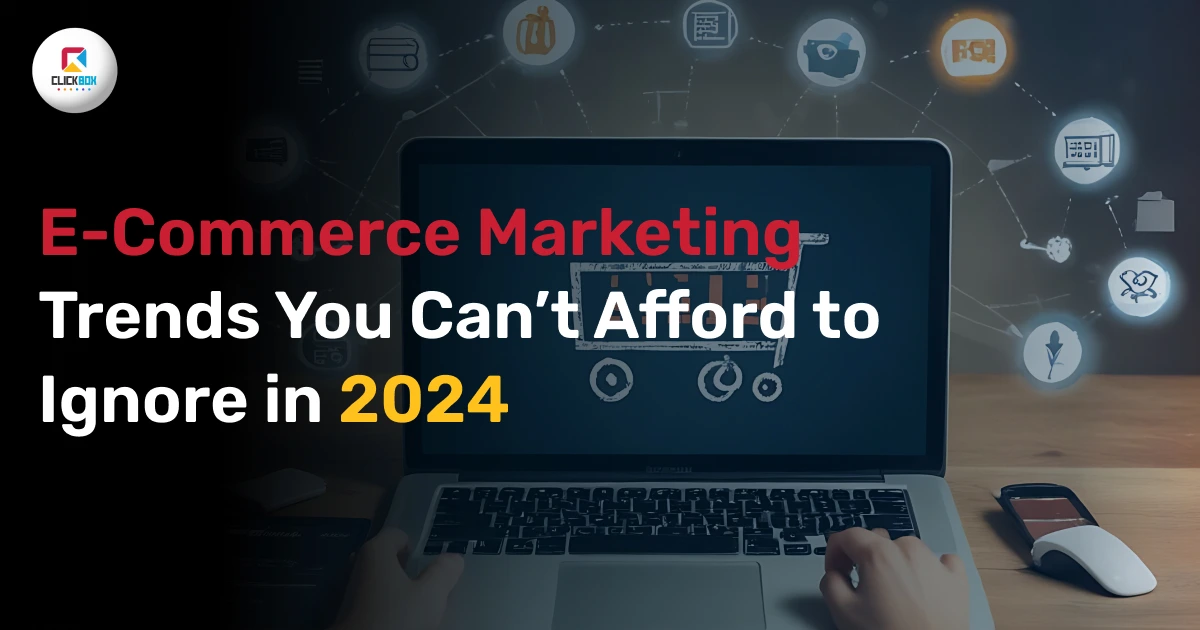
E-Commerce Marketing Trends to Follow in 2024
|
"E-commerce is not just about selling online. It’s about being where your customers are and delivering value through a seamless digital experience" Neil Patel |
|---|
To better prepare for future challenges and create more informed decisions, familiarize yourself with the e-commerce marketing trends for 2024. Even though having a fantastic product is important, not enough merchants today desire to sell it to move inventory. This is the reason we consistently advise you to design a satisfying buying environment around your merchandise. Our company's adoption and application of the newest e-commerce trends and e-commerce industry insights is a major component of this.
Numerous fresh trends in 2024 could propel substantial expansion for your eCommerce company. The primary trends that we think will alter how people purchase and sell online are included in this article. You just cannot ignore this in the upcoming months, so go get some coffee and get your notes ready.
Why E-Commerce Trends in 2024 Are Essential
As we move further into 2024, staying abreast of the latest e-commerce industry trends is not just an option but a necessity for any online business. The digital landscape is evolving rapidly, and adapting to these changes can significantly impact your success. Here’s why keeping up with e-commerce strategies and e-commerce marketing trends this year is essential:
1. Enhanced Customer Experience
The focus on personalization and customer-centric strategies is growing. By incorporating e-commerce industry insights, businesses can create more engaging and customized shopping experiences that cater to individual preferences and behaviors.
2. Competitive Advantage
Embracing the latest e-commerce trends in 2024 allows businesses to stay ahead of competitors. Implementing innovative technologies and strategies can help you differentiate your brand and capture market share.
3. Optimized Operations
Understanding emerging trends can streamline your operations. From automation to advanced analytics, leveraging these e-commerce industry trends can enhance efficiency, reduce costs, and improve overall business performance.
4. Informed Decision Making
Keeping up with the latest trends provides valuable data and insights that can guide your strategic decisions. This knowledge helps in making informed choices about e-commerce strategies, marketing tactics, product development, and customer engagement.
5. Future-Proofing
The digital landscape is ever-changing. By staying updated with e-commerce trends, you can future-proof your business, ensuring it remains relevant and adaptable to new challenges and opportunities.
Must-Know E-Commerce Trends for 2024: Strategies to Stay Ahead
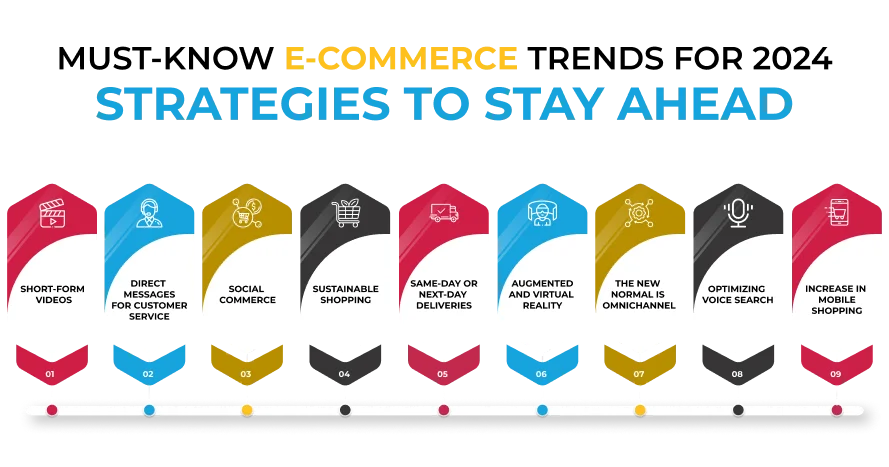
1. Short-Form Videos
Short-form videos have become a powerful tool in e-commerce marketing, with platforms like TikTok leading the charge. These bite-sized videos allow brands to engage with audiences in a creative, authentic way. To capitalize on e-commerce marketing trends, focus on creating content that resonates with current music, effects, and video concepts without being overtly promotional. Adapting to these trends can increase your reach and improve brand visibility. An increase from 33% in 2015 to 87% in 2022 indicates that marketers see a good return on investment (ROI) from video.
2. Direct Messages for Customer Service
The rise of direct messaging on platforms like Instagram and X (formerly Twitter) reflects a broader shift in customer service preferences. Consumers now expect personalized interactions and immediate responses through these channels. For businesses, this means integrating direct messaging into their e-commerce strategies is crucial. A comprehensive customer service approach that spans multiple platforms helps avoid missed opportunities and enhances overall customer satisfaction.
3. Social Commerce
Social media is no longer just for marketing; it's becoming a direct sales channel. With features like Instagram Shops, users can now purchase products directly within the app. Nearly half of social media users are open to buying through these platforms, making it a key area to watch. Leveraging e-commerce industry trends like social commerce can expand your reach and provide a seamless shopping experience for your customers.
4. Sustainable Shopping
Consumer preferences are shifting towards brands that demonstrate corporate responsibility and sustainability. Nearly half of consumers are more likely to support companies that actively engage in charitable activities. Incorporating sustainable practices into your e-commerce strategies not only aligns with these values but also appeals to a growing segment of environmentally conscious shoppers. Highlighting your commitment to sustainability can boost brand loyalty and influence purchasing decisions.
5. Same-Day or Next-Day Deliveries
With major retailers like Amazon setting high standards for delivery times, consumer expectations are shifting towards faster shipping. Offering same-day or next-day delivery options can significantly enhance customer satisfaction and drive sales. As part of current e-commerce marketing trends, ensuring efficient and speedy delivery is essential for staying competitive and meeting consumer demands.
6. Augmented and Virtual Reality
Augmented Reality (AR) and Virtual Reality (VR) are transforming the online shopping experience by allowing customers to visualize products in their own space. Companies like Ikea are leading the way with AR apps that help customers see how products fit into their homes. As these technologies become standard, integrating AR and VR into your e-commerce industry trends can provide a competitive edge and improve the overall shopping experience.
7. The New Normal Is Omnichannel
Delivering a smooth and uniform shopping experience to customers across all platforms and channels is known as omnichannel retailing.
Considering how widely voice assistants and mobile devices are being used, this is significant. Indeed, according to 73 percent of participants in a Harvard Business Review survey, consumers use a variety of channels when they purchase.
Make sure your website is mobile-friendly and provides options for making purchases such as "buy online," "pick up in-store," "choose home delivery," and more. Additionally, you may guarantee a customized and all-inclusive e-commerce experience by utilizing programs like SAP Commerce Cloud and Finteza.
8. Optimizing Voice Search
Voice search optimization is crucial as voice assistants and smart speakers like Alexa and Google Assistant become common household items. Voice searches are more conversational and localized, diverging from traditional text queries. To stay competitive in the evolving e-commerce industry trends, businesses must adapt their SEO strategies by incorporating voice-specific keywords, optimizing for local searches, and ensuring compatibility with voice search engines.
9. Increase in Mobile Shopping
Mobile shopping is no longer a trend but a standard practice. With the widespread use of smartphones and improved mobile networks, consumers are increasingly making purchases on their phones. To align with current e-commerce industry trends, businesses need responsive designs that adjust to various screen sizes and optimize UI for mobile users. Integrating mobile payment methods like Apple Pay and Google Wallet is essential, as users quickly abandon mobile-unfriendly websites, impacting revenue and brand reputation. Ensuring a seamless mobile shopping experience is crucial for success. By 2025, mobile commerce is expected to generate sales of more than $710 billion.
Conclusion
Staying ahead in the ever-evolving world of e-commerce requires a keen understanding of emerging e-commerce industry trends. From optimizing voice search to adapting to the surge in mobile shopping, businesses must continually refine their strategies to remain competitive. Embracing these innovations ensures a more engaging and efficient shopping experience for customers.
To successfully navigate these trends and enhance your digital presence, consider leveraging expert services in digital marketing e-commerce. Agency specializes in crafting tailored strategies that align with the latest trends, helping businesses like yours achieve remarkable growth and visibility. Contact ClickBox Agency today to transform your e-commerce approach and stay ahead in the digital marketplace.
John Click
Digital Marketer | SEO Copywriter | Content Strategist
Experienced digital marketer with a proven track record in creating compelling content that not only engages audiences but also drives conversions and enhances SEO visibility. My expertise extends beyond marketing strategy to crafting persuasive narratives that resonate with your target audience. I combine data-driven strategies with captivating writing to deliver measurable results, ensuring your brand shines in the digital landscape.




